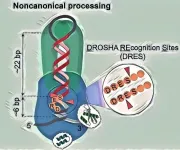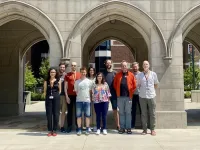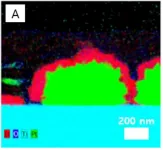(Press-News.org) Our skin contains specialised long-lived killer cells that protect against intruders. Researchers at Karolinska Institutet in Sweden and the University of Copenhagen in Denmark have now identified how these cells are formed, and shown that high levels of memory killer cells in cancer tissue correlate with a better survival rate in people with melanoma. The study is published in the journal Immunity.
Certain immune T cells called tissue-resident memory cells are formed locally in the skin and other tissue, and protect against infections that they have encountered before. Some of them express proteins that enable them to kill infected cells. These “memory killer cells” can also contribute to the inflammatory skin disorders vitiligo and psoriasis. Recent research has shown that they are also involved in the body’s immune response to various cancers.
Varying responses to treatment
The memory killer cells have been shown to respond to immunotherapy, a Nobel Prize-winning cancer therapy involving the tweaking/activation of the immune system. Immunotherapy is normally administered as a complement to other cancer treatments, and there is considerable variation in how patients respond to it.
“We don’t know so much about how and why memory killer cells are formed in the skin and what it means for cancer patients,” says Professor Yenan Bryceson at the Department of Medicine (Huddinge), Karolinska Institutet. “Finding out how these cells develop enables us to contribute to the development of more efficacious immunotherapy for diseases like melanoma.”
The study charted the development of memory killer cells in human skin, performed as a collaborative effort between KI researchers Beatrice Zitti and Elena Hoffer. The researchers isolated T cells from the skin and blood of healthy volunteers and used advanced techniques to examine gene activity and expression of different proteins. This allowed them to identify T cells in the blood with the potential to develop into memory killer cells in skin or other tissues. After knocking out specific genes, they could also demonstrate which genes are required for the maturation of memory killer cells in tissue.
More effective immunotherapy
The researchers then went on to study tumour samples from melanoma patients and found that those with a higher rate of survival also had a larger accumulation of epidermal memory killer cells.
“We’ve been able to identify several factors that control the formation of memory killer cells, which play an important part in maintaining a healthy skin,” says Liv Eidsmo, dermatologist and professor at the University of Copenhagen in Denmark and researcher at Karolinska Institutet in Sweden. “There’s a fine balance between effective protection against tumours and infections in the skin and contribution to inflammatory diseases like vitiligo and psoriasis.”
The researchers now aim to harness their findings to optimise the immunotherapy-induced T-cell response to make it even better at eliminating cancer cells in tissues.
The study was conducted in collaboration with the Karolinska University Hospital, Nordiska Kliniken and Vrinnevi Hospital. It was financed by grants from Novartis, the EU (Marie Skłodowska-Curie Actions), KI Foundations and Funds, the Swedish Research Council, the Ragnar Söderberg Foundation, the Swedish Medical Society, Region Stockholm (ALF scheme), the Swedish Psoriasis Foundation, the Swedish Dermatology Foundation, the Swedish Cancer Society, the Göran Gustafsson Foundation, Stockholm City Council, the Karolinska Institutet Centre for Innovative Medicine (CIMED) and the Knut and Alice Wallenberg Foundation. There are no reported conflicts of interest.
Publication: “Human skin-resident CD8+ T cells require RUNX2 and RUNX3 for induction of cytotoxicity and expression of the integrin CD49a”. Beatrice Zitti, Elena Hoffer, Wenning Zheng, Ram Vinay Pandey, Heinrich Schlums, Giovanna Perinetti Casoni, Irene Fusi, Lien Nguyen, Jaanika Kärner, Efthymia Kokkinou, Anna Carrasco, Jessica Gahm, Marcus Ehrström, Staffan Happaniemi, Åsa V. Keita, Charlotte R.H. Hedin, Jenny Mjösberg, Liv Eidsmo, Yenan T. Bryceson. Immunity, online 2 June 2023, doi: 10.1016/j.immuni.2023.05.003.
END
Memory killer cells can improve survival for melanoma patients
2023-06-02
ELSE PRESS RELEASES FROM THIS DATE:
HKUST researchers unveil long-sought noncanonical cleavage mechanism in miRNA biogenesis
2023-06-02
To discover and thoroughly demonstrate the newly identified noncanonical cleavage mechanism, the Hong Kong University of Science and Technology (HKUST) research team, led by Prof. Tuan Anh Nguyen, Assistant Professor of the Division of Life Science, used several sophisticated techniques, such as miRNA sequencing, pri-miRNA structure analysis, and high-throughput pri-miRNA cleavage assays for approximately 260,000 pri-miRNA sequences. In contrast to the canonical mechanism, the noncanonical mechanism does not rely on several essential protein and RNA elements ...
Immune system discovery could benefit spinal cord injuries
2023-06-02
New research suggests that the immune system’s ability to respond to spinal cord injuries diminishes with age – and identifies potential avenues to improve that response and help patients heal.
The new findings offer important insights into how the immune system responds to spinal-cord injuries, and why that response becomes blunted with the passing years. Further, it reveals an important role for the membranes surrounding the spinal cord in mounting the immune response to spinal-cord injury. With this information, doctors one day may be able to bolster the body’s natural immune response to improve patient outcomes, particularly among older adults.
“Recently, ...
UTHSC researchers’ work on human pangenome aids understanding of common chromosomal abnormality
2023-06-02
Researchers from the University of Tennessee Health Science Center have made a foundational discovery about chromosome biology through their work on the first-ever human pangenome reference.
Published recently by the Human Pangenome Reference Consortium in the journal Nature, the draft pangenome uses complete genome assemblies to provide a diverse look at the genetic makeup of humans. Researchers in the UTHSC Department of Genetics, Genomics and Informatics created the technical tools to build the pangenome, and then used the tools to understand variation in parts of the genome that could not be seen before.
The pangenome ...
Mysterious dashes revealed in Milky Way’s center
2023-06-02
New radio telescope images reveal hundreds of filaments along the galactic plane, each measuring 5 to 10 light-years in length
These structures likely originated a few million years ago when outflow from our supermassive black hole interacted with surrounding materials
Researcher: ‘I was actually stunned when I saw these’
EVANSTON, Ill. — An international team of astrophysicists has discovered something wholly new, hidden in the center of the Milky Way galaxy.
In the early 1980s, Northwestern University’s Farhad Yusef-Zadeh discovered gigantic, one-dimensional filaments dangling vertically near Sagittarius A*, our ...
ASCO: Adding ribociclib to hormone therapy improves outcomes in patients with early breast cancer
2023-06-02
A study involving UCLA Jonsson Comprehensive Cancer Center researchers found when ribociclib, a targeted therapy drug, is added to hormone therapy there are a significant invasive disease-free survival benefit in patients with early hormone-receptor (HR) positive/HER2 negative breast cancer.
Researchers found that patients who took the combination therapy had substantially longer invasive disease-free survival compared to those who were treated with the hormone therapy alone, regardless of whether the cancer has spread to the lymph nodes. The addition of the targeted therapy reduced the risk of recurrence by 25%.
The results were shared today during the American Society of Clinical ...
New research suggests wheat crops may be threatened by unprecedented heat and drought
2023-06-02
The world is getting hotter, causing shifts in seasonal patterns and increasing the amount of extreme weather such as severe droughts and heat waves, which can affect crop yields and food supplies. A recent study led by a researcher at the Friedman School of Nutrition Science and Policy at Tufts University found that the likelihood of extreme temperatures that could affect crop yields has increased significantly in wheat-producing regions of the U.S. and China.
The findings predict heat waves that happened approximately ...
Eventually everything will evaporate, not only black holes
2023-06-02
New theoretical research by Michael Wondrak, Walter van Suijlekom and Heino Falcke of Radboud University has shown that Stephen Hawking was right about black holes, although not completely. Due to Hawking radiation, black holes will eventually evaporate, but the event horizon is not as crucial as had been believed. Gravity and the curvature of spacetime cause this radiation too. This means that all large objects in the universe, like the remnants of stars, will eventually evaporate.
Using a clever combination of quantum physics and Einstein’s theory of gravity, Stephen Hawking argued that the spontaneous creation and annihilation ...
Underwater forest's recovery offers hope for marine restoration across the globe
2023-06-02
Human activity has degraded ecosystems and damaged biodiversity around the world, but ecosystem restoration offers hope for the future. Scientists studying the restoration of underwater seaweed forests which provide other species with food and shelter have found that 10 years of restoration efforts have helped a damaged forest regrow to richness and strength comparable to forests that have never been disturbed.
“Macroalgal forests are found along over one-third of the world’s coastlines and underpin ...
Developing technologies to reduce the cost of green hydrogen production
2023-06-02
Green hydrogen, which produces hydrogen without the use of fossil fuels or the emission of carbon dioxide, has become increasingly important in recent years as part of efforts to realize a decarbonized economy. However, due to the high production cost of water electrolysis devices that produce green hydrogen, the economic feasibility of green hydrogen has not been very high. However, the development of a technology that drastically reduces the amount of rare metals such as iridium and platinum used in polymer electrolyte membrane water electrolysis devices is opening the way to lower production costs.
A research team led by Dr. Hyun S. Park and Sung Jong ...
ASCO 2023 - Sylvester Comprehensive Cancer Center experts available for interviews
2023-06-02
Sarcomas
Dr. Jonathan C. Trent, a medical oncologist specializing in Sarcoma and Connective Tissue Medical Oncology at Sylvester, is available to discuss a wide range of issues related to Sarcoma research and experimental therapeutics. He and collaborators are involved in multiple ASCO23 presentations, including:
Multi-omic characterization of gastrointestinal stromal tumor (GIST) in a large real-world patient cohort.
Outcomes in patients with advanced gastrointestinal stromal tumor who did not have ...



